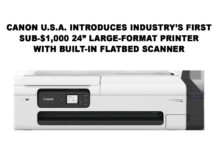 Hiring the right people is essential to the continued success and growth of your business, and job interviews are the best way to gain insight into candidates’ skills, strengths, and how well they will fit with your company. It is also important to realize that a job interview is a mutual learning experience. It requires both sides to share information, so that both parties have the opportunity to evaluate the suitability of the match.
Hiring the right people is essential to the continued success and growth of your business, and job interviews are the best way to gain insight into candidates’ skills, strengths, and how well they will fit with your company. It is also important to realize that a job interview is a mutual learning experience. It requires both sides to share information, so that both parties have the opportunity to evaluate the suitability of the match.
As such, following are some suggestions for conducting effective interviews:
First clarify what you need
Advance preparation can dramatically improve your interview results—and ultimately your hiring decision. But preparation doesn’t mean marshalling “The 50 Most–Asked Job–Interview Questions” or other generalizations. As basic as it sounds, the key factor in preparing for the hiring interview is clearly deciding what you need.
Start by creating or reviewing a job description. Then compile a personal profile of the employee you require, including both technical and soft skill sets, ranked in order of importance.
Consider whether you are filling a new position or replacing someone. If it is an existing position, you have the advantage of history: really knowing what skills and experience candidates must have to do the job properly. Were you happy with the way the job was performed before? If so, you probably want to find someone with attributes similar to your previous employee. But if not, you may have an equally clear idea of what approaches or personalities don’t work in the job. Or you may need to change the job responsibilities—and revise the job description to incorporate these changes.
It is also important to define your corporate culture and reporting structure and what it takes to fit into both. Identify people with whom the new person will be working most closely. Consider reviewing your notes with key individuals—customers as well as staff—to ensure they agree with your requirements.
Again, the main goal is to clarify your needs. Clarity not only provides criteria for selecting candidates to interview from the application pile, but also for formulating interview questions. It also improves your focus and ability to communicate in interviews.
Formulate questions that reflect your needs
Many progressive companies favour behavioral interviewing. It works on the premise that the most accurate predictor of future performance is past performance in similar situations. Accordingly, it structures questions to determine whether the candidate has actually demonstrated the behaviors, knowledge, and skills required for the job, often beginning questions with phrases such as “Tell about a time you…” or
“Describe a situation when…”
So if you’re looking for an employee who will encourage and motivate her colleagues, you might say: “Tell me about an occasion when you took the time to share a co–worker’s achievement with others.” If you’re seeking problem–solving or time–management skills, you might ask, respectively, “In your last job, what problems did you identify and solve that had been overlooked previously?” or “How do you set priorities when scheduling your time? Give examples.” “How” questions, such as the last one, which require candidates to explain in detail how they did something, can be especially revealing, since answers of appropriate depth and knowledge are nearly impossible to fake.
It is also helpful to inquire about a candidate’s immediate and future career objectives, since you need to know how they align with what you have to offer. These are areas which PrintLink’s clients sometimes ask us to investigate on their behalf during prescreening to determine whether candidates truly meet their hiring prerequisites. Questions about why candidates want to leave their present job or what they dislike about their present company require special discretion to avoid spurring candidates into breaching confidentiality or professional courtesy. In other words, try not to put people in a position where they feel that to qualify for the new opportunity they need to criticize past employers or colleagues.
Ask each candidate the same core questions
Although good interviewers show flexibility by adjusting their responses to individual reactions, it’s still necessary to maintain enough structure and consistency that you ask each candidate the same set of core questions. It will be much easier to compare candidates later if you can measure everyone against matching criteria.
My next column will equip you with five more essentials of effective interviewing.
Victoria Gaitskell is a placement specialist with PrintLink, a professional placement firm for the graphic communications industry. T: 1.877.413.2600 E: vgaitskell@printlink.com





